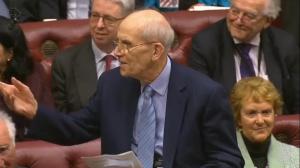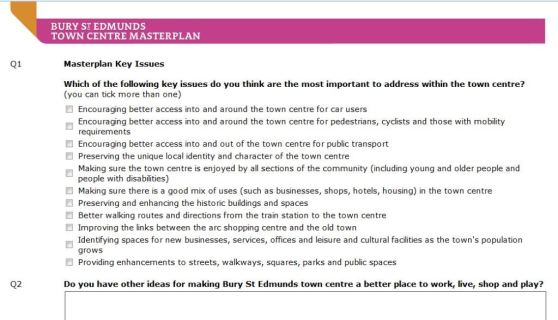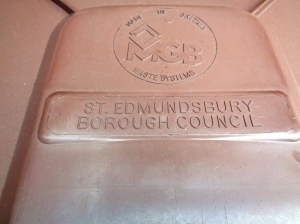© Paul Farmer
Introduction and health warning
There should be one reason for putting yourself up for election: you want to serve and improve your community. There may be incidental reasons (a little glamour, kudos and power) but none of these should be a substitute for service. If it is, then you will be sorely disappointed! By service, I mean a whole range of actions and contact with other councillors and those residents you represent, from speaking at important public meetings to more mundane dealings with wheelie-bins, litter or dog poo.
The following is written by a councillor of twelve years’ standing, who has served on all three levels of local councils. The information and views contained are offered on a personal and informal basis: they have not been approved by any council; nor are they a substitute for relevant election law, which all prospective candidates should make themselves familiar with. Please note that I take no responsibility whatsoever for any reader who gets into any personal, legal or electoral difficulties as a result of what is written below. You have been warned!
How do I get elected?
Councillors (also known as ‘members’ of a council) are linked to a ‘ward’ (parish, town and district councils) or a ‘division’ (county councils). This is simply a specified area containing the residents whom the councillor represents. A councillor sometimes shares these ‘electors’, as they are called, with one or even two others. It follows that a council’s area is divided up into a number of wards/divisions.
Councillors are often linked to a political party, but many are independent. How you become a councillor will be depend on whether or not you want to have a party affiliation.
If you support a particular party, and want to be linked to it, then you need to contact its local office and say that you want to stand as a councillor. The local branch will need to select you, and if you are successful it will then process your nomination and support you in your campaign to get elected.
As an independent candidate you are free to nominate yourself. District councils administer elections on behalf of all councils. Get in touch with the district council’s elections officer well before an election, so that you can acquire the election timetable, together with the necessary forms to process before the various deadlines. You will need up to ten signatures of those on the electoral register living in the ward or division you wish to represent. You will also need to live or work in the council’s area.
For further information google the Electoral Commission’s website, from which you can access all the relevant information. In particular you will need to familiarise yourself with basic election law, which for example requires you to provide details of your election expenses – which are strictly limited.
Elections are held on the first Thursday in May, each year in some council areas or every four years in others. By-elections are held occasionally, because a councillor resigns or dies ‘mid-term’.
Election day
How you conduct your election campaign will be up to you and your party, if you are not an independent candidate, and information about that is the subject for a separate guide.
However, when on election day you think you have done everything you can to persuade your voters to get out and vote for you before the polls close at 10 pm, you go along to the same-day count (make sure you applied for a ticket) where more work awaits you. (It is possible for the count to be held on the following day, allowing you to retire to bed early on election night!)
Your job at the count is actively to scrutinise the counting of your (and others’) votes. All humans err, including some at the count, and as you are able to watch them counting you may be able to point out any slip that occurs. Moreover, you may be needed to help adjudicate on any doubtful votes, such as crosses not fully contained in the candidate’s box, ticks instead of crosses, slogans and downright obscenities!
Unless yours is a by-election, the whole process can take a long time, so bring some refreshment. And if the result is very close, you have the right to ask for a re-count. Don’t be afraid to: I have personally witnessed temporarily mislaid votes that have turned up during the second count!
Just before the result is announced, all the candidates or agents may be told the provisional result by the returning officer, to check that this is acceptable, and then if there is no re-count it will be announced. Depending on the result, that is when your work as a councillor begins or ends.
What does a councillor do – within the council?
There are three levels of councils: county, district (which includes ‘borough’) and parish (larger parishes can be called ‘town’ councils). Each has different responsibilities which can be discovered by looking at their websites. For example, all counties organise social care and education; districts planning and licensing; and parishes allotments, land and buildings and salt/grit bins. There are also some ‘unitary councils’, which are responsible for all of the functions in their area.
Officers of the council, led by a chief executive or parish/town clerk, administer its the day to day operation, based on the policies and actions decided by its members. These decisions may be made by the council meeting in full (all parish/town decisions are made in this way), by committees (e.g. planning and licensing) or by cabinet members, one of whom will be the ‘leader’. A small number of councils are led by an elected mayor. The old system, whereby all executive decisions were made by politically balanced committees, is still used by some councils.
So where does the newly elected member fit into all this? In the first place you would immediately be a full and equal member of the council: there is no probationary period! The council’s first decisions will be made at the annual meeting of the council held shortly after the election. The agenda includes the election of the leader and mayor/chairman (non-executive and largely ceremonial) and chairmen of scrutiny committees. A parish council will just elect its chairman (or mayor for some town councils) who does not lead the council but chairs its meetings. If you are politically affiliated, your parties ‘group’ will decide whom it wants to support for leader.
Sometime after your election you will have the opportunity to say what your local government interests are, and this will help your leader decide what committees to put you on. This decision will be constrained by the requirements for political balance, and fitting all the round pegs into the right round holes can be difficult. Inevitably you may not get your first choice of committee.
The council and your committees will meet perhaps a few times a year each, and you may feel that not a great deal of time needs to be devoted to your new occupation. If you are keen, you can always ask to do more.
To some, the way councils and committees conduct their business may seem strange, with such terms as ‘standing orders’, ‘points of order’, ‘amendments’ and so on. The council’s standing orders are actually a helpful way of telling everyone how business will be transacted, and should be studied before you take part in a formal meeting.
What does a councillor do – outside the council?
As a councillor your first duty is to represent the best interests of your electors (not just the ones that voted for you) but you also have a responsibility to promote the interests of the whole council and all its residents.
Whilst long-serving councillors may become busy chairmen of committees or cabinet members, a back-bencher is always in demand. You might have got a taste for this in your election campaign, when members of the public may have contacted you to complain about this or that action done or not done by “the council”. Complaints can range from too much litter on the pavement to objecting to a major planning application. Each will have to be dealt with, either by contacting an officer who can intervene, or by personally meeting the resident or even representing him/her at a planning meeting.
It is therefore extremely important to try and find your way around the various council officers’ responsibilities and know their internal telephone and email details. So much of the day-to-day work of a council member is finding the right officer who can help. Good personal relationships and mutual trust are obviously helpful in getting the desired solution to residents’ issues.
Sometimes the problem brought to you falls within the realm of a different level of council. In such cases you need to know who your opposite numbers are on the other tiers of organisation. So, a district councillor should know the member who represents the division that covers his ward. In this way highways’ matters (e.g. pot holes) can be referred to the responsible authority.
There will however be times when the issue that has arisen cannot be dealt with by any council. For example parking offences, which falls within the local police’s remit, domestic land disputes or neighbour conflicts. You should tread carefully with the latter two, for fear of getting too involved without being able to solve the problem. Referring to a mediation agency is one way of dealing with warring neighbours.
Dealing with electors
Out of all your electors, a tiny minority will take up a disproportionate amount of your time, either because they find much to complain about (some or all of which may not be connected with the council) or perhaps they just enjoy making contact. I have had a variety of strange requests for advice, including complaints about TV reception (happily no longer, since the proliferation of satellite dishes) and a woman who wanted a permanent man in her life – fortunately for both of us, not me!
Some of the hardest matters to deal with are those brought by people who have become involved in long-running disputes, not always involving the council, who think that because of your newly elevated status you will be able to help them. Maybe you can, but you may want to seek advice before committing yourself, especially if the council is the other party. Contact your council’s chief officer, or if necessary a third party. All the main political parties have an association for their members, and the Local Government Association have an Independent group.
Many people have a false view of a local councillor’s power to get things done. Whilst there may be occasions when the title ‘Cllr’ opens a door for you to help someone, in many cases you are a go-between for passing on complaints or requests.
The vast majority of your electors will never contact you. That doesn’t mean that you shouldn’t contact them, either with periodic newsletters which tell them what you are doing and that remind them that you are there to help, or through local campaigns. Social media can bring you to a wider audience, but should only be used as additions to and not a substitutes for conventional means of communication.
When delivering leaflets or canvassing in general, respect the occasional ‘No Publicity’ notice as you will simply annoy the occupants, but don’t be afraid to include apparently empty properties when leafleting: you never know whether the next occupier might become one of your supporters.
Learn where the dogs and cats live – yes, I have had blood drawn from a cat’s paw through the letterbox. You need to develop a technique which both ensures the material lands on the mat (foes may later retrieve the half-posted leaflet!) yet keeps your fingers on the outside of the letterbox.
Be prepared for a scantily clad person, dutifully answering their door on exiting their shower; and in all cases be aware of your own safety and reputation – perhaps by thinking carefully before accepting an invitation into the home. Door-knocking in pairs is the safer option, and a much more enjoyable one.
All councillors have information about them available through their council, and you need to be aware that your declaration of interests is a public document. Look for an example on any council’s website to see what this entails.
Similarly, your address and telephone number are public information, and you should decide how ‘available’ to the public you are prepared to be. You may be quite happy to be available on your mobile 24/7 or on the other hand employ an answering facility outside ‘office hours’.
Waste, planning & licensing
These are three major functions of a district/borough council.
The one aspect of a council’s work that touches everyone is domestic waste collection – or the bin lorry. Whilst the system might work perfectly for 51 weeks every year, there are all manner of reasons why it may occasionally fail: weather, vehicles blocking access and lorry malfunction are all possible. The important thing for the relevant councillor to do is find out in advance the key person/s to contact in such an event. Don’t wait for the worst to happen!
Planning applications can be controversial in the town or the countryside, and will often attract objections. Smaller applications (e.g. an extension or new garage) will be decided by a planning officer unless for some unforeseen reason the local councillor needs and is able to bring it to the relevant committee. Major applications will usually be decided by the planning committee.
The roll of the local councillor can be either to support or object to the application. Whilst an applicant may seek the member’s support, this is more likely to be sought by a number of objectors – simply because there will be more of them. There are times when there are as many people in favour of the objection, though this is unusual in my experience.
Councillors have to decide where they stand on the basis of a careful scrutiny of the application, knowledge of the immediate area and of relevant planning policy, and the nature and extent of representations received by local people. It is a fascinating area of work which can be rewarding, as when a small neighbourhood is denied an ugly intrusive building through your active involvement in the planning process.
Similarly, the licensing of public houses and clubs can involve several local residents who may be affected by an increase in drinking hours or a change in the nature of an establishment, and council members can be involved in supporting residents at hearings held to decide on such applications. Licensing law is different from planning law and is enshrined in The Licensing Act 2003 and its guidance.
Much of the above may at first seem daunting. Your council is however likely to have a scheme of training for members in all the basic areas with which you would need to familiarise yourself. Once trained, you may even be able to become a member of the planning or licensing committee, doing the deciding rather than the representing.
In addition to the three functions above, district/borough councils are responsible for:
collection of council tax and non-domestic rates;
environmental health;
housing;
leisure centres;
local plans;
public conveniences.
Remuneration
Depending on the type of council, an allowance may be paid to members. The amount, which also depends on whether the councillor holds a post of responsibility, will be modest compared with any normal employment. For examples of exact amounts go to councils’ websites.
Expenses are usually payable for transport to official council meetings, for childcare or subsidence. All other travel and expenses incurred as a result of working with electors is not payable, but a tax allowance for use of the home as an office may be negotiated with your tax office.
It is prudent to check whether your house and car insurance cover you for ‘official’ use. It should also be noted that allowances and expenses (and attendance at meetings) is a matter of public record.
Conclusion
Being a local councillor can be a most rewarding occupation, which can usually be carried out alongside a part-time job. Not surprisingly it can be hard work, and inevitably the greater the effort put into it, then the more likely you are to be asked to help even more people. The maxim ‘if you want a job done well, ask a busy person’ certainly applies here!
If having read all the above you are not deterred from becoming a local councillor, then why not have a go?
© Paul Farmer





